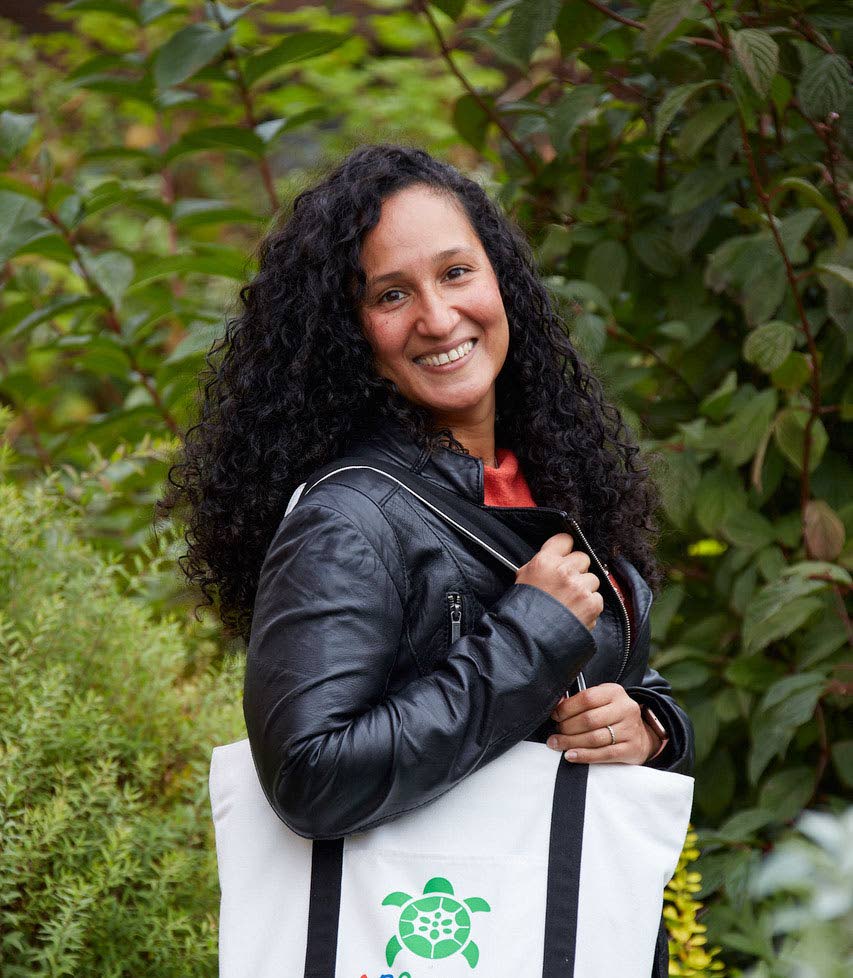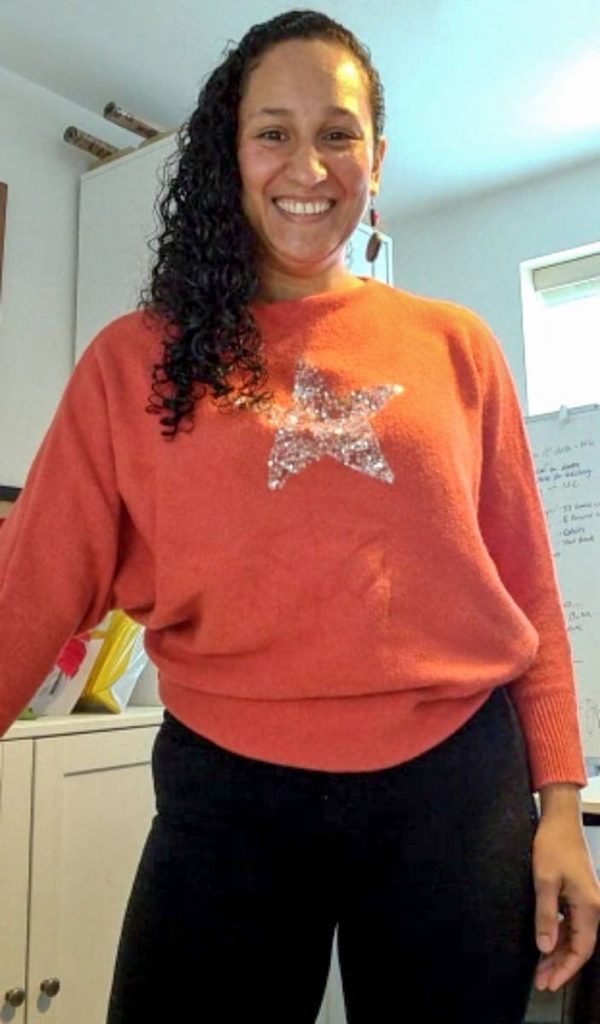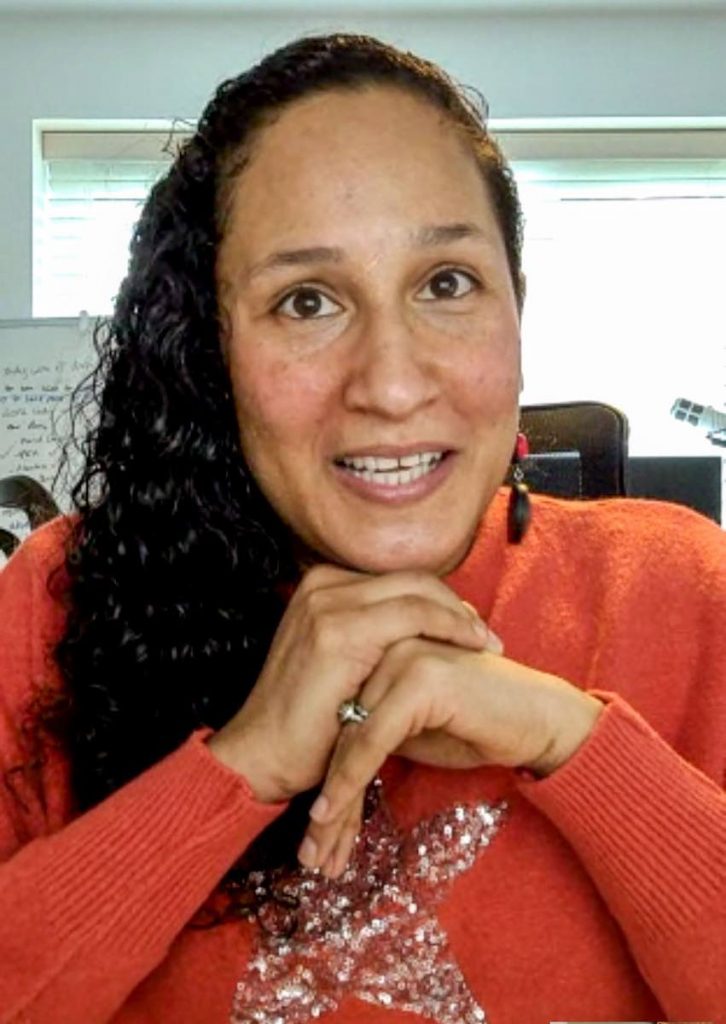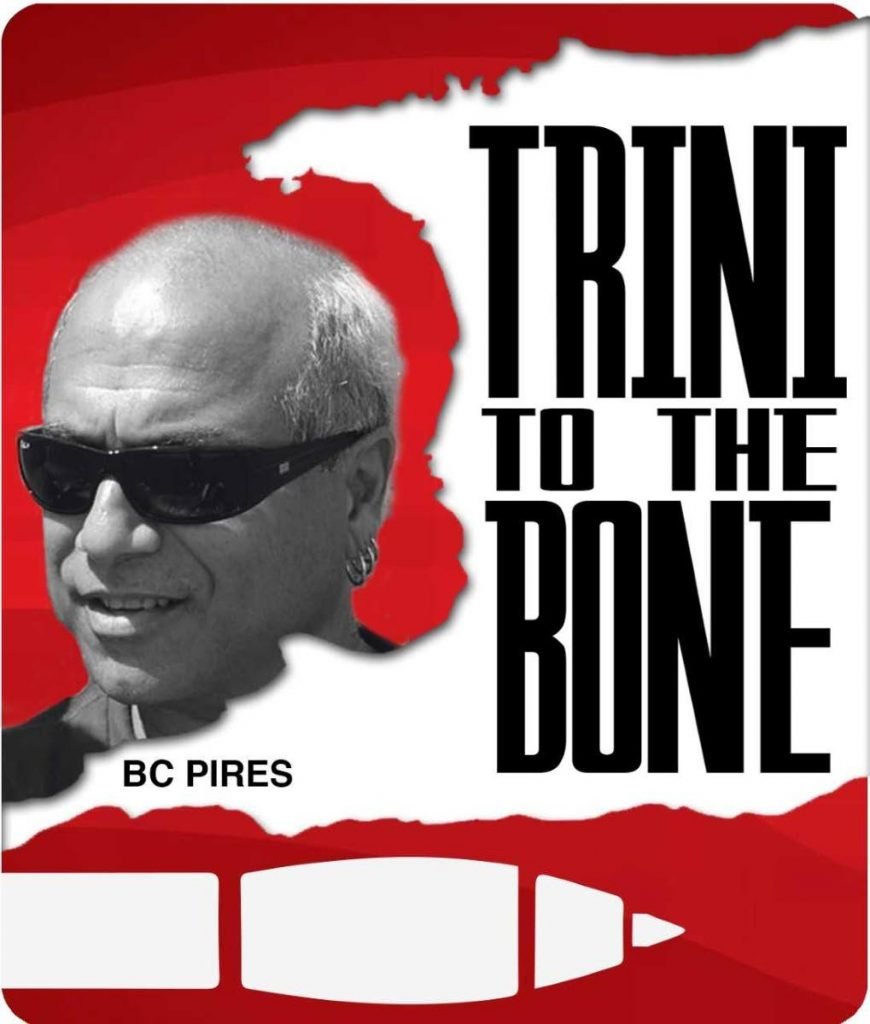Savannah lass

AS TOLD TO BC PIRES
My name is Nikisha Watson and I’m the woman cooking and wining to the tune of Savannah Grass in the video that went viral.
I am born and bred in Trinidad and spent all of my childhood, adolescence and early adulthood in Chaguanas.
It was real country then and I still say I’m a country girl. But now my old neighbourhood is like a little mini-city. Opposite my parents’ house, there's now a big gym.
I went to UWI Prep School and Naparima Girls' High School.
At 20, I moved to London to do my BSc degree and have lived in England since, (apart from three years) back in Trinidad.
I now live in Cheshire with my husband of six years, Jamie Parker. And our three children, Yanice, 14, Yiethan, six, and Yelena, two.
I’d been married before, when I was 23, to a man I’d met when I was 15 and it didn’t last very long. My first son is his.
I always loved maths and was toying with the idea of doing maths as a university degree. My father didn’t actually discourage me but he gave me the sense of, well, what you go do with that?
Then a guest speaker at a Naps career day was an actuary, which I had never heard about, like most people. Being an actuary, using maths as a career, sounded so exciting to me.
It’s not exciting at all.
Because my degree was mathematical, it didn’t attract a lot of English people. My class was mainly Asians, Chinese and Caribbean islanders. So I have to tell BC Pires that the old racial stereotype kinda came true: Asians were good at maths. But a Trini was at the top of my class! But then she’s
Chinese-Trinidadian!
If you like playing with numbers and data, being an actuary is really enjoyable. And I do enjoy it.
Which makes me sound like the most boring person alive. Actuaries are so academic, they can’t relate to people, only numbers.

- BC Pires
I used to be an actuarial consultant, which is much more exciting. Consulting actuaries actually have a bit of a personality.
But I was working long, long, long hours. To have a third child, I became an insurance company, nine-to-five life actuary.
You get paid really well but you have to work like a dog to get qualified. It took me seven years, spread over a ten-year period.
I ended up in the English countryside.
My dad’s father was Scottish so we have a lot of family in the UK and would visit as children. My idea of what English people were like came from staying with my aunt, who lived in an area where everybody spoke like the queen.
I was really shocked when I found out what (the real England) was like! Once you leave the big cities, England is not at all multicultural at all. And the further north you go, it becomes less and less multicultural.
My biggest worry about living in the English countryside wasn’t for me, but for my children, the only brown children in their entire school.
I have cousins in Scotland who look just like me because we’re related on both sides – my dad’s brother married my mum’s mother – and they got really badly bullied because of their skin colour. So my main concern was that.
I’ve been called the n-word twice, both times in London, both times by drunk rednecks with no education, so I didn’t feel insulted.
I’d only recently moved to England and I didn’t think I was black. I’m a red woman from Trinidad!
When I heard the word, I turned around to see who it was the man was talking to.
Because I wanted my half-English children to feel connected to their Trinbago heritage, I became an author of children’s books. I’ve published two about Trinidad and Tobago. The characters are modelled on my kids: British children with a Trinidadian mom, who takes them to Trinidad to teach them about their heritage and identity. I wanted them to see mixed race children in books.
One book is based on the alphabet and the other on counting. With each letter of the alphabet, the children go somewhere or eat something in Trinidad that begins with that letter.
The ironic thing was, I got criticised for it because my children are light-skinned. That wasn’t “representation,” because the children weren’t dark enough.
My husband shot a video of me in the kitchen at home that went viral.
When I’m cleaning, or doing any household chore, I always play soca and dance. And my husband would video me and send it to my whole family.
In February 2019, Carnival time, I was cooking and listening to Kes’ Savannah Grass and he just put the camera on. The naturalness of it was genuine, which is what most people who commented said.

Savannah Grass still gives me goosepimples every time I hear it. How do you explain (to non-Trinis) that, by being Trinidadian, you can be so moved by hearing a song about a patch of grass?
It was fascinating, going to Trinidad after the video had gone viral: people walking up to me in the streets, screaming at me.
In the departure lounge in Piarco Airport, with my son, I saw Brian Lara in the distance. I write about him in one of my children’s books. I pointed him out to my son… And then Brian Lara walked across the departure lounge straight to us and said, “You are that girl in the Savannah Grass cooking video!”
There are Trinidadians who – I don’t understand how they survive in Trinidad. Because they just don’t belong. They don’t appreciate what they have. People say, ‘Oh God, covid, we stuck here!’
Are you mad? You saying you “stuck”? In one of the most beautiful islands on the planet? Where you could go hiking or swimming every day? With a 15-minute plane ride to a luxury holiday in Tobago?
There’s so much anger in the atmosphere there now, people in Trinidad can’t see how much they have!
There’s an expression of freedom in it that you don’t get outside of Trinidad. Just in terms of the outdoors.
Yeah, we have outdoors in England, but most of the time, it’s just dark and cold and muddy and wet.
To me, Trinis could be defined more by their deep-rooted spirit rather than, “You born in Trinidad.”
I consider my children to be Trinidadian although they’re born in England. Because they’re raised under and carry my spirit and culture. They’re just as Trini as they are English because of what they eat, the colours they like, the soca music they dance to.
They don’t speak the dialect but they understand it.
Trinidad and Tobago means, not just “home” and “family” to me, but freedom, warmth, sense of humour and being myself, just me, in every sense of the word.
I’ve been in England for 18 years and I’ve accepted that it’s my home (in my head) but I haven’t embraced it (in my heart) yet.
Read the full version of this feature on Saturday at www.BCPires.com


Comments
"Savannah lass"